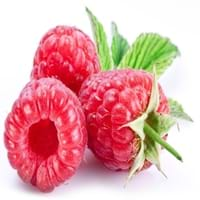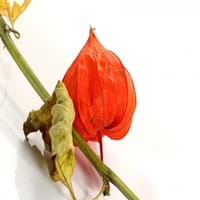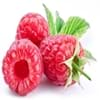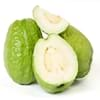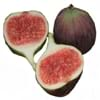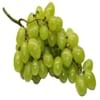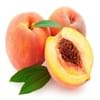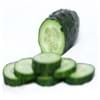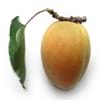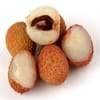Health Benefits
Cancer prevention, Heart care, Prevents macular degeneration, Reduces blood circulation problems
Anti-oxidant properties, Anti-inflammatory properties, Cancer prevention, Maintains healthy cholesterol level, Reduces blood circulation problems, Treatment of cough, fever & sore throat, Treatment of Hypertension
General Benefits
Anti-inflammatory properties, Controls blood sugar levels, Digestive aid, Eye care, Helps in weight loss
Treatment of asthma, Treatment of cataract, Treatment of hepatitis, Treatment of macular degeneration, Treatment of neurodegenerative diseases
Skin Benefits
Anti-aging benefits, Brightens and lightens complexion
Treatment of Rheumatism & Dermatitis, Treatment of Skin Inflammation
Hair Benefits
Acts as moisturizer, Regulates hair growth, Shiny hair
Unknown
Allergy Symptoms
Breathing difficulty, Eczema, Hives, Itching, Nasal congestion, Runny nose, Sneezing, Watery eyes, Wheezing
NA
Side Effects
Allergic reaction
Hypertension, Ventricular Tachycardia
Best Time to Eat
Best if taken as a breakfast (or empty stomach), As a snack in the late afternoon, Don't eat after meal, Morning time (before lunch)
As a snack in the late afternoon, Eat the fresh ones, avoid mixing with any other foods, don't eat after meal., Morning time (before lunch), Strictly avoid empty stomach
Vitamin B5 (Pantothenic Acid)
Not Available
Vitamin B6 (Pyridoxin)
Not Available
Vitamin B9 (Folic acid)
Not Available
Vitamin C (Ascorbic Acid)
Vitamin K (Phyllochinone)
Not Available
Lutein+Zeaxanthin
Not Available
Water Content
Not Available
Calories in Fresh Fruit with Peel
Calories in Fresh Fruit without Peel
Not Available
Not Available
Calories in Frozen Form
Not Available
Calories in Dried Form
Not Available
Calories in Canned Form
Not Available
Type
Berry
Fruit vegetable
Season
Summer
Spring, Summer
Varieties
Amity, August Red, Boyne, Canby, Caroline, Comet, Dinkum, Dorman Red, Latham, Meeker, Black Hawk, Hayda, Lauren, Meeker and Latham
Physalis franchetii, Physalis pruinosa, Physalis peruviana, Physalis heterophylla and Physalis philadelphica
Color
Black, Purple, Red, Yellow
Bright Yellow, Orange
Origin
Europe, North Asia
Chile, Peru
Climatic Conditions
Cold
NA
Facts about
- There are more than 200 varieties of raspberries.
- In USA, 90% of the raspberries are grown in Washington, California and Oregon.
- They do not ripe after they are picked.
- A raspberry contain 100 to 120 seeds.
NA
Other Countries
Azerbaijan, Canada, Mexico, Poland, Serbia, Spain, Ukraine, United Kingdom, United States of America
NA
Top Importer
United States of America
Netherlands
Top Exporter
Poland
Colombia
Botanical Name
Rubus Idaeus
Physalis Peruviana
Synonym
Not Available
Alkekengi, Herschellia & Pentaphitrum
Subkingdom
Tracheobionta
Tracheobionta
Division
Magnoliophyta
Magnoliophyta
Class
Magnoliopsida
Magnoliopsida
Subclass
Rosidae
Asteridae
Family
Rosaceae
Solanaceae
Species
R. idaeus
Physalis
Generic Group
Rose
Not Available
Compare Raspberry and Physalis
It is important compare Raspberry and Physalis as both the fruits have a different nutritional value. Their comparison can be done on the basis of their vitamin and mineral content, calories, benefits as well as characteristics, making it easier for us to choose the best fruit for our diet. Their general health benefits are as follows:
Raspberry Benefits: anti-inflammatory properties, controls blood sugar levels, digestive aid, eye care and helps in weight loss.
Physalis Benefits: treatment of asthma, treatment of cataract, treatment of hepatitis, treatment of macular degeneration and treatment of neurodegenerative diseases.
Fruits are also used as a remedy for various hair problems. The hair benefits of Raspberry are: acts as moisturizer, regulates hair growth and shiny hair and hair benefits of Physalis are: unknown. Some fruits are known to cause allergic reactions. The allergy symptoms of first fruit are: breathing difficulty, eczema, hives, itching, nasal congestion, runny nose, sneezing, watery eyes and wheezing and the symptoms of second fruit are: na. Get sorted Raspberry vs Physalis comparison with the help of fruit comparison tool by fruitvs.com.
